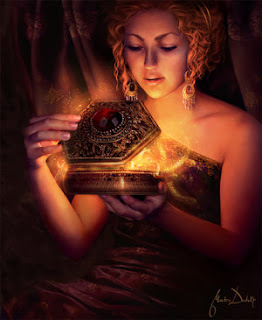Seven Deadly Sins: Sloth Second Edition

Sloth Sloth (Latin, Socordia) can entail different vices. While sloth is sometimes defined as physical laziness, spiritual laziness is emphasized. Failing to develop spiritually is the key to becoming guilty of sloth. In Christian faith, sloth rejects grace and God. Sloth has also been defined as a failure to do things that one should do. By this definition, evil exists when good men fail to act. Calypso is a lovely seductress, a queen, and a goddess. She is the daughter of Atlas, Titan of the West and Lord of Endurance and Tethys, a Titaness and sea goddess. She is described as being a kind and sweet 'minor goddess'. She lives and rule an island called "Ogygia" (pronounced Oh-jee-jee-ah). Sometime after Zeus defeated the Titans, Calypso send to the island Ogygia west of Greece. Ogygia is a phantom island that exists everywhere and nowhere. It was designed as the prison for Calypso. It is a very gorgeous place, where there are invisible servants and a beau...




